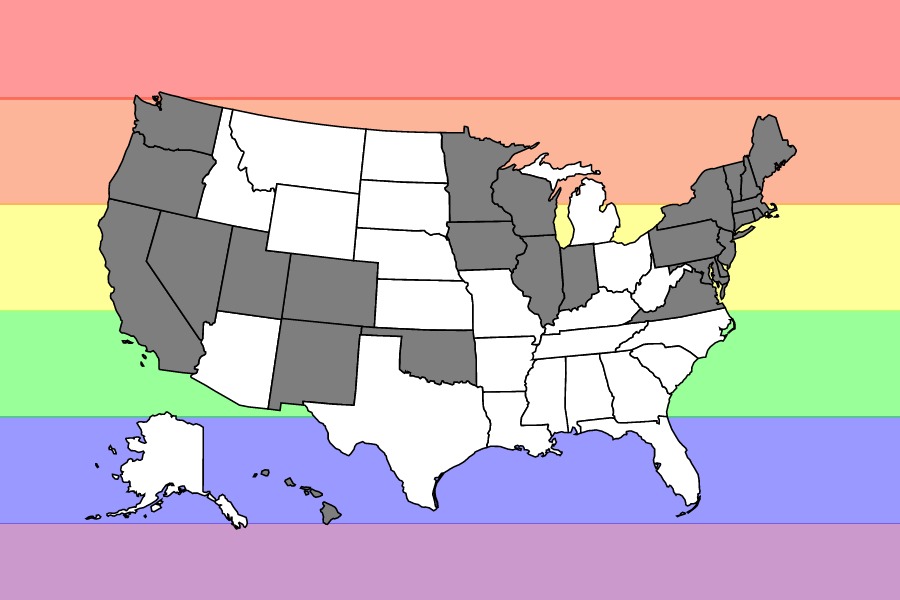Supreme Court decision expands legality of same-sex marriage
As of Oct. 17, a total of 31 states and the District of Columbia allow same-sex marriage. This number jumped from 19 states and D.C. in the past three weeks, sparking national controversy.
This increase is a result of the U.S. Supreme Court’s Oct. 6 refusal to hear cases on same-sex marriage bans in the 4th, 7th, and 10th Circuit Courts of Appeals. This refusal made the Circuit Courts’ decisions to strike down bans effective, basically legalizing same-sex marriage in 11 states.
On the next day, the 9th Circuit Court of Appeals struck down bans in Idaho and Nevada. If left unchallenged by the Supreme Court, this decision will also constrain Montana, Alaska, and Arizona, making the total number of states affected 16. JC students’ attitudes towards these rulings lie on a wide spectrum.
“There’s no good explanation why it [was illegal] in the first place,” junior Julia Henninger said. “The fact that we have [31 states] where [same-sex marriage] is legal now is a huge step forward, and I think other states need to step up to the plate.”
Other students think otherwise, however, and believe in traditional marriage. “Homosexuality is disgusting and morally wrong. If [same-sex individuals] get married, it opens up a can of worms,” senior Joe Dotterweich said. “If gay people get married because they love each other, then I could say ‘I love my dog,’ and marry my dog.”
Dotterweich argues that the state government should hold the power to make this decision instead of circuit courts. “In the Constitution, it’s not a power of [circuit courts], so [the final decision] should be reserved for the states.”
Junior Kate Runser acknowledges the power struggle between the state and federal governments but thinks that “it’s appropriate that the government is pushing for this because it’s important for this change to happen.”
“This is not the first time the federal government has stepped in in a case like this,” Henninger added. “They’ve done it in the past. This is no different.”
Henninger believes the circuit courts should be allowed to make an executive decision, “but only because if [the government didn’t step in], this whole process would be longer.”
According to Runser, this is the beginning of positive change in society. “This is a movement supporting people making their own personal decisions and other people not limiting them because of their own opinions,” Runser said.
However, with change comes potential roadblocks. “I think the root of the problem is the general misunderstanding. People seem to think that people choose [homosexuality], and I think this is due to a gross misrepresentation in the media, in politics, in movies, in everything,” Henninger said.
“God loves everyone and everyone is created the way they were meant to be created,” Henninger said. “People just need to realize that the issue isn’t going to go away. It’s not going to be a quick process, because lots of people have discrimination deeply rooted in them, but I think this is the start for true equality.”
Nick Miller is an A&E Editor for The Patriot and jcpatriot.com.



